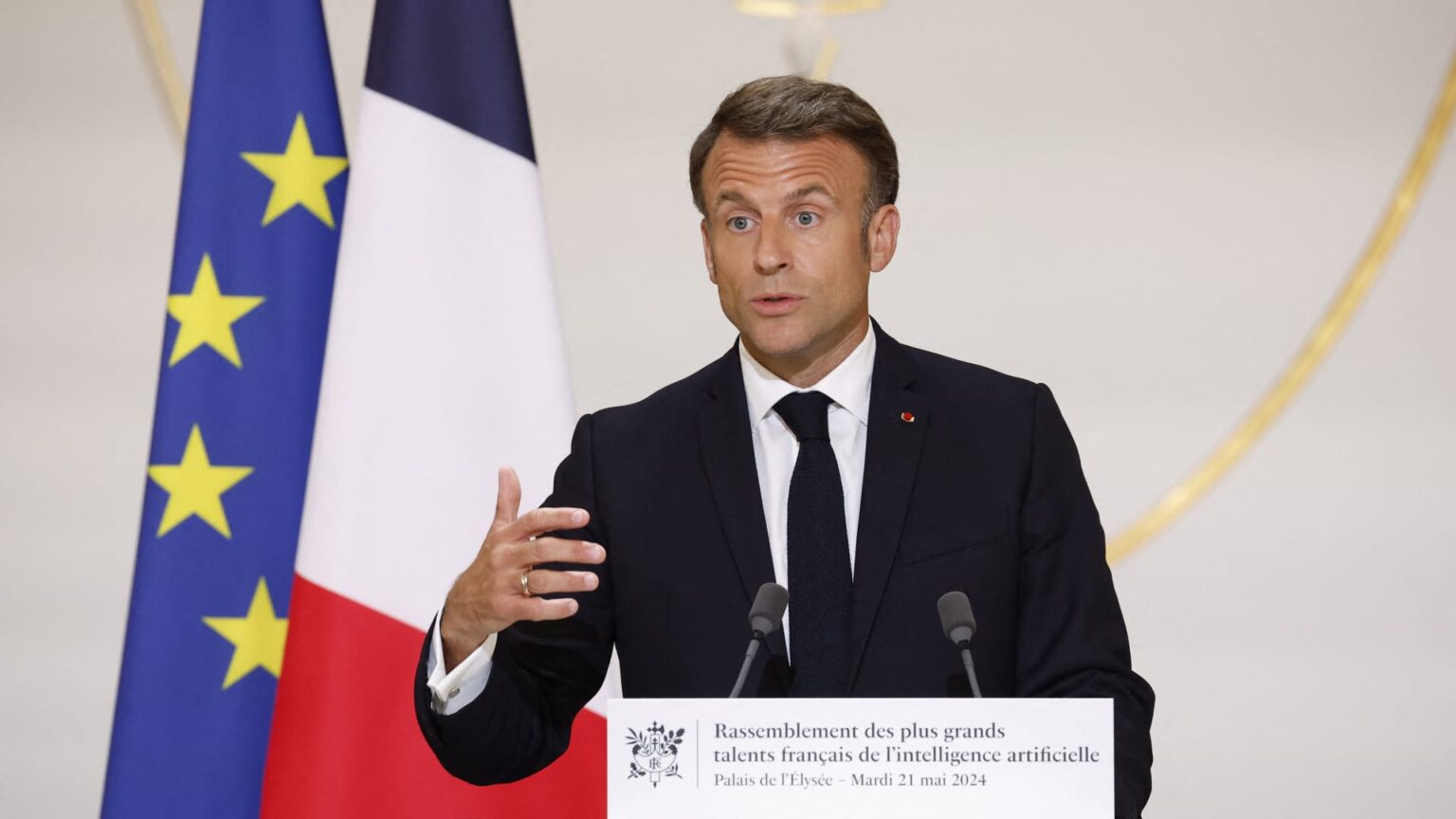French President Emmanuel Macron on Sunday said he would dissolve the country’s parliament and call for a new legislative nationwide vote after suffering a heavy defeat at EU elections.
The shock announcement came after exit polls published by public broadcaster France TV indicated that Marine Le Pen’s far-right National Rally (Rassemblement National, or RN) is set to win around 31.5% of the vote, compared to 15.2% for Macron’s Renaissance party.
“I will … not be able, at the end of this day, to act as if nothing had happened,” Macron said in a TV address, according to a translation by CNBC.
The first round of the parliamentary election will take place on June 30, with the second round on July 7, Macron said.
After requesting that Macron call an election, Le Pen welcomed the news, saying on X: “We are ready for it.”
Calling the legislative election is a risky move by Macron, who could be left with no control over France’s domestic issues if Le Pen’s RN wins a parliamentary majority. Macron’s presidency isn’t due to end until 2027 and he’s unable to stand for a third term.
“By unexpectedly bringing things to a head in a new parliamentary election, Macron may hope to revive the fortunes of his party,” Holger Schmieding, chief economist at Berenberg Bank, said in a note on Sunday evening. “However, barring a major swing in sentiment, his party looks set to lose heavily in the parliamentary elections.”
He added that, for a “fiscally challenged France,” new elections add uncertainty that could cause some concern for markets.
Bardella in the spotlight
RN is led in Europe by Jordan Bardella, 28, who has made it his mission to make the far right acceptable to France’s youth and beyond. In an Ipsos poll published in May, 32% of those questioned said they would be satisfied if Bardella became president in 2027 (above Le Pen, who came in second with 31%).
The nationalist and populist party’s campaign pledges included to “restore” order to France, close “radical” mosques and stop what it calls the “migratory submergence.” It also pledged to reduce VAT on energy bills, invest in nuclear energy and reduce the retirement age to 60, “for those who start working early.”
Historic pledges to leave the EU and ditch the euro were dropped by Le Pen some time ago as she looked to appeal to wider spectrum of voters.
“Whether today’s French result and likely gains at the snap parliamentary election may put Le Pen on course to become president eventually is a very different matter, though,” Berenberg’s Schmieding said.
“For her, it is easy to rail against a second-term president who has lost popularity. But that is not the same as winning in a presidential election (due in 2027) against a fresh contender. A lot will depend on whether French centrist parties can field an attractive candidate against her.”
Polls closed on Sunday after the final, and biggest, day of voting in elections for members of European Parliament, with populist, far-right parties winning record support, according to early data.
The center-right European People’s Party (EPP) is once again projected to win the most parliamentary seats, however, with slightly more seats than before. The far-right Identity and Democracy group, which RN is a part of, made major gains.
— CNBC’s Charlotte Reed contributed to this report.
Read the full article here










